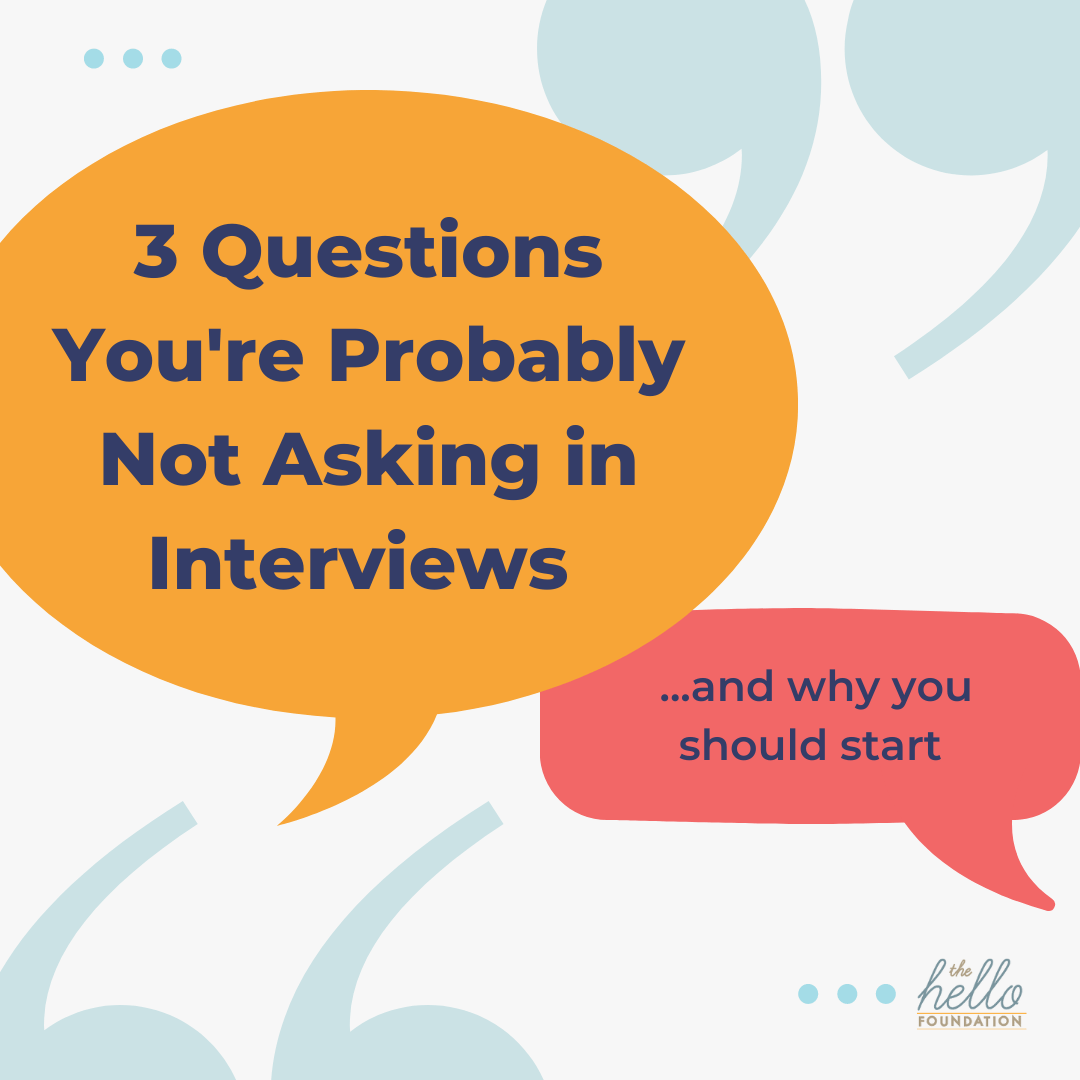As a special education administrator, chances are pretty good that interviewing candidates is, at times, a significant part of your job. There is tremendous pressure to find the right person to fill any position that involves direct student contact, and that pressure is turned up to 11 when you’re competing for high-demand individuals such as SLPs, school psychs, and OTs. All of the folks who make it to the interview stage are qualified, and many of them will interview well enough that you’d feel comfortable offering them a job. And yet, we all know that every person who interviews well isn’t a good fit!
3 Questions You’re Probably Not Asking in Interviews & Why You Should Start
Here are three interview questions that will help you better understand the candidates you’re talking to, what their answers say about them, and what the questions will tell the candidate about working for you.
Question 1. How do you take care of yourself?
What it says about them: Most special education professionals will feel overwhelmed at some point in the school year, whether due to workload demands, challenging students, or some combination of the two. This question will give you insight into the candidate’s work-life balance and how resilient they might be to the inevitable pressures of the special education environment. Do they have a quick answer or a long list of things they do to fill their cup? Do their faces light up when they talk about it? Or do they fumble for an answer or say something like, “My life is my work”
What it says about you: This question lets the interviewee know that mental health and well-being are important to you and that you understand that they are more than their work. Who wouldn’t want to work for someone who sees them as a whole person and not just an IEP machine?
Question 2. Tell me about a time when you were in an ethically questionable professional situation
What it says about them: It can sometimes feel like a career in special education is one exceedingly long course in professional ethics! But even folks new to the field are likely to have a story in their work history that involved an ethical quandary. Here, you’re looking for self-awareness and self-reflection and getting an idea of how they handle themselves when things get sticky. How do they explain the situation? Do they assign blame or take ownership? Do they see situations as nuanced, or are they more of a black and white thinker?
What it says about you: This question demonstrates that ethics are important to you and that you also understand the complex, often gray nature of this work. Specialists are likely interviewing with more than one district, and you can easily set yourself apart by demonstrating that you prioritize ethics in your department.
Question 3. How do you like to be recognized?
What it says about you: This question will tell you what makes the person in front of you feel seen and heard and how you can keep them on board should you decide to hire them. It will also give you some insight into how they’ll fit into your department’s culture. Are they someone who prefers a subtle note of appreciation, and you’re someone who gives public shout-outs at staff meetings? Do they like having short, regular check-in meetings, or do they prefer emails instead? Is that a good fit for your leadership style?
What it says about them: Asking a question about a person’s professional appreciation language communicates that you’re a leader who knows the value of encouragement. Many special education administrators only show up when things have gone horribly awry. Working for someone who will be there when you’re doing a good job is a rare treat indeed!
Still not convinced to add these to your interviewing repertoire? Here’s some added incentive: A 2015 review reported that burnout is responsible for 13% of special education teachers leaving the field every year. What happens when someone leaves the field? That’s right. You have to find a replacement! Going beyond the basic interview questions to find out more about the actual person you’re hiring means that you’re increasing the likelihood that they’ll be with your district for a long time, and that’s good for you and your students.






